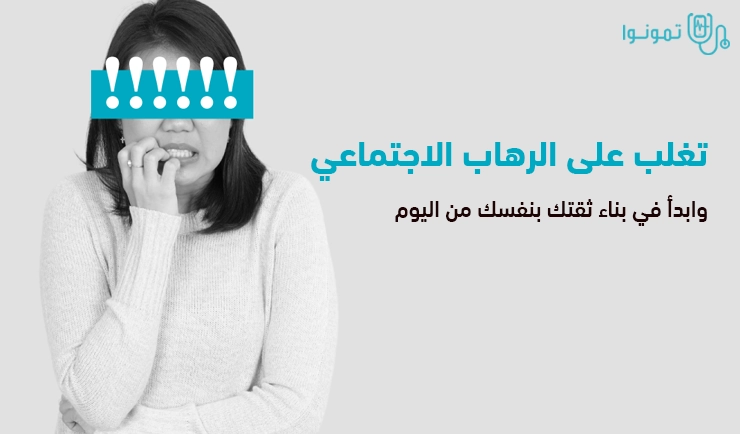Suscipit aperiam qui
Categories
Similar Articles

الامراض النفسية | احدث طروق علاج اضطراب نفسي
هل تشعر بالتعب النفسي وتبحث عن حل؟ علاج اضطراب نفسي هو الخطوة الأولى نحو استعادة حياتك الطبيعية. لا أحد منا معصوم من مواجهة تحديات نفسية قد تؤثر على جودة حياتنا اليومية، ولكن لا داعي للقلق، لأن هناك طرق فعّالة يمكنها مساعدتك في التغلب على هذه الاضطرابات. في هذا المقال، سنستعرض مجموعة من المعلومات الهامة حول الاضطرابات النفسية وأنواعها المختلفة، بالإضافة إلى طرق علاج الاضطراب النفسي المتاحة، فضلاً عن أسلوب الحياة والعلاجات المنزلية التي تساعد في علاج اضطراب نفسي بشكل فعال. تابع معنا لاكتشاف كيف يمكن أن تبدأ بداية جديدة مليئة بالأمل والتعافي.الاضطرابات النفسيةالاضطرابات النفسية هي مجموعة من الحالات التي تؤثر على التفكير، المشاعر، والسلوكيات. يمكن أن تكون هذه الاضطرابات مؤقتة أو طويلة الأمد، وقد تؤدي إلى تحديات كبيرة في الحياة اليومية. تشمل هذه الاضطرابات مشاكل مثل القلق، الاكتئاب، الفصام، اضطرابات الطعام، والوسواس القهري، وغيرها. تؤثر الاضطرابات النفسية على الأفراد بشكل مختلف، مما يستدعي علاجاً فردياً يتناسب مع نوع وشدة الحالة. ومع تزايد الوعي في المجتمع حول أهمية الصحة النفسية، أصبحت طرق علاج اضطراب نفسي متنوعة وتستهدف تحسين الحالة النفسية للفرد عبر أساليب مختلفة، تشمل العلاج النفسي والأدوية ودعم البيئة المحيطة.أنواع الاضطرابات النفسيةتتنوع الاضطرابات النفسية بشكل كبير وتؤثر على الأفراد بطرق مختلفة. إليك نظرة تفصيلية على بعض الأنواع الأكثر شيوعاً:اضطرابات المزاج يمر المريض في هذا النوع بفترات طويلة من الحزن الشديد والمستمر، أو يتنقل بين فترات من الحزن العميق وأخرى من السعادة المفرطة. من أبرز هذه الاضطرابات هو الاكتئاب واضطراب ثنائي القطب، حيث يؤثر كل منهما على الحياة اليومية للمريض بشكل كبير.اضطرابات القلق تعد من بين الأمراض النفسية الأكثر شيوعاً، حيث يعاني المريض من شعور مستمر بالخوف والقلق الذي لا يتناسب مع الواقع ولا يستطيع السيطرة عليه. تشمل اضطرابات القلق اضطراب القلق الاجتماعي واضطراب الهلع، حيث يمكن أن يتسبب كل منهما في تأثيرات سلبية كبيرة على حياة الشخص المهنية والاجتماعية.الاضطرابات الذهانية تؤثر هذه الاضطرابات على التفكير والإدراك، حيث يرى أو يسمع المريض أشياء غير موجودة (هلاوس) أو يعتقد بمعتقدات خاطئة (أوهام). من أشهر الأمثلة على هذه الاضطرابات هو الفصام، الذي يسبب تشوهاً في طريقة التفكير والشعور.اضطراب الأعراض الجسدية يعاني المريض في هذا النوع من الأعراض الجسدية مثل الألم، دون وجود سبب عضوي واضح لهذه الأعراض. يعتقد بأن هذه الأعراض تنتج عن مشاكل نفسية غير محلولة.الوسواس القهري يتميز هذا الاضطراب بوجود أفكار ومخاوف مستمرة تسيطر على عقل المريض، مما يدفعه لأداء طقوس معينة بشكل متكرر لمحاولة التخلص منها أو تقليل القلق المرتبط بها.اضطرابات الأكل تشمل هذه الاضطرابات سلوكيات تناول الطعام غير الصحية، مثل فقدان الشهية العصبي الذي يؤدي إلى تجنب تناول الطعام بشكل مفرط، أو نهم الطعام حيث يتناول الشخص كميات كبيرة من الطعام في فترة قصيرة.اضطراب التحكم في الاندفاع يفقد المريض القدرة على مقاومة بعض الدوافع القوية للقيام بأعمال ضارة مثل افتعال الحرائق أو السرقة، مما يؤثر على حياته وحياة من حوله بشكل كبير.الاضطرابات الجنسية تتضمن مشاكل متعلقة بالأداء الجنسي، مثل مشاكل الانتصاب، سرعة القذف، واضطراب النشوة الجنسية عند النساء، مما يمكن أن يؤثر على العلاقة الزوجية والحياة الجنسية بشكل عام.هذه الأنواع المتعددة من الاضطرابات النفسية تتطلب فهماً عميقاً وعلاجاً متخصصاً لمساعدة المرضى على التغلب عليها والعيش حياة أفضل.طرق علاج الاضطراب نفسي تتنوع طرق علاج اضطراب نفسي بناء تشخيص الحالة استشارة دكتور نفسي على نوع الاضطراب وشدته واحتياجات الشخص. فيما يلي بعض الطرق الأساسية المستخدمة في علاج الاضطرابات النفسية:الأدويةالأدوية المضادة للاكتئاب: تستخدم لعلاج اضطرابات مثل الاكتئاب والقلق وفقدان الأمل وسوء التركيز وفقدان الطاقة. هذه الأدوية لا تسبب الإدمان.الأدوية المضادة للقلق: تنقسم إلى نوعين؛ الأول يعمل على المدى الطويل مثل مضادات الاكتئاب، والثاني سريع المفعول لكنه قد يسبب الإدمان.الأدوية المُحسنة للمزاج: تُستخدم لعلاج اضطرابات مثل اضطراب ثنائي القطب، ويمكن أن تُستخدم مع مضادات الاكتئاب لعلاج الاكتئاب.الأدوية المضادة للذهان: تستخدم لعلاج اضطرابات مثل انفصام الشخصية، ويمكن أن تُستخدم مع مضادات الاكتئاب لعلاج الاكتئاب.العلاج النفسيالعلاج النفسي الديناميكي: يعتمد على افتراض وجود مشكلات مرتبطة بالمشاعر نابعة من الطفولة، ويهدف إلى حلها من خلال الحديث عن التجارب الشخصية. قد يستمر هذا العلاج من عدة أشهر إلى عدة سنوات.العلاج النفسي الشخصي: يهدف إلى تحسين علاقات الشخص مع محيطه وزيادة ثقته بنفسه، ويتم عادة خلال 3-4 أشهر. يمكن استخدامه مع علاج اضطراب نفسي الديناميكي لعلاج الاكتئاب الناتج عن فقدان عزيز أو صراع العلاقات أو تغيرات اجتماعية.العلاج السلوكي المعرفي: يركز على تحديد المفاهيم الخاطئة لدى الشخص ومحاولة تغيير تصوره عن نفسه والآخرين. يُعد مناسباً للأشخاص الذين يرفضون أو لا يستطيعون تناول أدوية مضادة للاكتئاب.علاجات تحفيز الدماغ: تستخدم هذه العلاجات بعد فشل الأدوية والعلاج النفسي في حل المشكلة. تشمل الصدمات الكهربائية أو تحفيز أعصاب الدماغ لعلاج اضطرابات مثل الاكتئاب.العلاج في مستشفيات الاضطرابات النفسية: بعض الحالات تتطلب العناية المكثفة في مستشفيات الاضطرابات النفسية بسبب فقدان السيطرة على الحالة في المنزل أو خوفًا من إيذاء الشخص لنفسه أو الآخرين. يمكن أن تتراوح مدة الإقامة من يوم واحد إلى إقامة طويلة.علاج التعاطي: في بعض الأحيان يرتبط التعاطي، مثل تعاطي الكحول أو بعض الأدوية، بالاضطرابات النفسية. إذا لم يستطع الشخص الإقلاع عن التعاطي بنفسه، يمكنه اللجوء إلى الطبيب للحصول على المساعدة.وبالتالي، هذه الطرق تقدم تفاصيل دقيقة عن كيفية التعامل مع الاضطرابات النفسية، وتبين أن كل حالة تتطلب نهجاً مخصصاً بناء على نوع وشدة الاضطراب.أسلوب الحياة والعلاجات المنزلية التي تساعد في علاج اضطراب نفسي بعد الانتهاء من مناقشة الطرق الطبية لعلاج الاضطرابات النفسية، سننتقل الآن إلى الحديث عن بعض العلاجات المنزلية التي يمكن أن تساهم في العلاج وتشمل:الالتزام بخطة العلاجيعد الالتزام بخطة العلاج التي يحددها الطبيب من أهم الخطوات لتحقيق التعافي. يجب تناول الأدوية في مواعيدها وعدم التوقف عن تناولها دون استشارة الطبيب، حتى لو شعر المريض بتحسن. كما يجب حضور جميع الجلسات العلاجية واتباع التعليمات المتعلقة بالعلاج النفسي.تجنب تعاطي الكحول والأدويةالكحول والأدوية الممنوعة يمكن أن تزيد من حدة الأعراض النفسية وتعيق عملية التعافي. يجب على المريض تجنبها تمامًا، والاستعانة بالدعم الطبي في حال وجود صعوبة في التخلص منها.ممارسة التمارين الرياضيةتلعب التمارين الرياضية دوراً كبيراً في تحسين الصحة النفسية. تساعد التمارين الرياضية على إفراز هرمونات السعادة مثل الإندورفين، مما يقلل من الشعور بالتوتر والاكتئاب. ينصح بممارسة التمارين بشكل منتظم، مثل المشي، الركض، أو اليوغا.المواظبة على نمط حياة صحيالحفاظ على نمط حياة صحي يمكن أن يساهم بشكل كبير في تحسين الحالة النفسية. يشمل ذلك:النوم لساعات كافية: يحتاج الجسم إلى فترة كافية من الراحة لاستعادة نشاطه والتعامل مع الضغوط النفسية. ينصح بالنوم لمدة تتراوح بين 7-9 ساعات يوميًا.تناول طعام صحي: التغذية السليمة تلعب دورًا كبيرًا في الصحة النفسية. يجب تناول وجبات متوازنة تحتوي على الفيتامينات والمعادن الضرورية مثل الفواكه، الخضروات، البروتينات، والكربوهيدرات المعقدة.تجنب اتخاذ القرارات المهمة أثناء وجود الأعراضعند وجود أعراض نفسية شديدة، قد لا يكون الشخص قادرًا على التفكير بشكل سليم. لذلك، ينصح بتجنب اتخاذ قرارات مهمة في هذه الأوقات مثل القرارات المالية أو المهنية الكبيرة. يمكن تأجيل مثل هذه القرارات حتى يصبح الشخص في حالة نفسية أفضل.تحديد الأولويات وتنظيم الوقتتنظيم الوقت وتحديد الأولويات يساعد في تقليل الضغط النفسي. يمكن استخدام تقنيات مثل كتابة المهام اليومية وترتيبها حسب الأهمية. هذا يساعد في إنجاز المهام بفعالية وتجنب الشعور بالإرهاق.وبالتالي، باتباع هذه الإرشادات والعلاجات المنزلية، يمكن تحسين الصحة النفسية والمساعدة في التعامل مع الاضطرابات النفسية بفعالية أكبر. لكن يجب دائمًا استشارة الأطباء والمتخصصين لضمان الحصول على الدعم وعلاج اضطراب نفسي المناسب. يمكنكم التعرف على المزيد من اهم المعلومات الطبية القيمة و المقالات المميزة فقط من خلال المدونة الخاصة بموقعنا tmoono .أسئلة شائعة حول علاج اضطراب نفسيكيف أعالج نفسي من الاضطرابات النفسية؟علاج اضطراب نفسي يتطلب استشارة مختص، العلاج النفسي، الأدوية، ممارسة الرياضة، وتحسين نمط الحياة.كيف أعرف أني أعاني من اضطراب نفسي؟إذا كنت تشعر بالحزن المستمر، القلق، التوتر، أو تغيرات في النوم والمزاج، قد تعاني.ما هو دواء الاضطرابات النفسية؟دواء الاضطرابات النفسية يشمل مضادات الاكتئاب، مضادات القلق، ومثبتات المزاج لتحسين الأعراض.هل يعالج الاضطراب النفسي؟نعم، علاج اضطراب نفسي يمكن معالجته باستخدام العلاج النفسي والأدوية ودعم أسلوب الحياة الصحي.في الختام، هل تعاني من اضطراب نفسي؟ لا داعي للقلق، فحل المشكلة بين يديك! من خلال علاج اضطراب نفسي مخصص لك، يمكنك استعادة توازنك النفسي والعيش بسعادة وراحة. لا تفوت الفرصة للحصول على الدعم الذي تحتاجه فقط مع مركز tmoono ، واتخذ خطوة نحو حياة أفضل الآن.
Show More الصحة النفسية
Social Phobia | How to Treat Social Phobia Advanced Methods
Do you feel extremely nervous when speaking in front of people or entering social situations? If you suffer from these feelings, you are not alone. Many people around the world suffer from social phobia treatment, which greatly affects their daily lives. But do not worry, solutions are available. In this article, we will review in-depth details about social phobia, the different types of social phobia, and how to treat it. We will talk about treating social phobia with medications and their benefits, in addition to treating social phobia without medications as other effective options. In this article, we will help you understand this topic comprehensively and learn the best ways to deal with it.Social PhobiaSocial phobia is a state of excessive fear and anxiety that a person feels in social situations, where they have difficulty interacting with others or speaking in front of them. It is also known as social anxiety, where those affected by it suffer from a constant fear of being criticized or judged negatively. What is social phobia? It is a psychological disorder that causes a person to feel uncomfortable in places where they expect to interact with others, such as parties or meetings.Social phobia is one of the most common types of psychological disorders among people. It requires medical consultation and is considered one of the most common psychological diseases as it requires treatment of a psychological disorder. One of the most prominent causes of social phobia is exposure to negative experiences in the past such as criticism or ridicule, which causes the person to constantly fear falling into the same situations.Types of Social PhobiaSocial phobia is a mental disorder characterized by excessive fear of social interaction and situations that require interaction with others. This disorder can manifest itself in several forms, as the types vary depending on the type of situations that cause anxiety. Here are some types of social phobia in detail:Public speaking phobiaThis is one of the most common types of social phobia, where a person suffers from excessive fear when speaking in front of a group of people or in public places. A person with this type of phobia feels afraid of making mistakes or being noticed negatively by others.Job interview phobiaThis type of social phobia occurs when a person feels extreme anxiety before or during a job interview. This may cause the individual to perform poorly in the interview due to excessive tension, affecting their chances of getting the job.Public eating phobiaPeople who suffer from this type of phobia feel shy and anxious when eating in public places such as restaurants or malls, for fear that others will notice them and start criticizing them.Stranger interaction phobiaThis type is the fear of interacting with people the individual does not know. People with this type of phobia have difficulty starting or maintaining conversations with others, which affects their social life.Phobia of large social eventsSome people have difficulty attending social events such as parties or large gatherings, as they feel anxious about interacting with others or getting into embarrassing situations in front of a large number of people.Therefore, each type of social phobia can affect a different type of social situation, so treatment needs to be tailored to the specific type of phobia and the individual’s personal circumstances.Treating social phobia with medicationsThere are several groups of medications provided by a psychiatrist that are used to treat social phobia, and the doctor chooses the most appropriate one based on the patient's condition. The most prominent of these medications are:Selective serotonin reuptake inhibitors (SSRIs)SSRIs are the first choice for treating social phobia. These medications work by increasing the level of serotonin in the brain, a neurotransmitter whose low levels are associated with anxiety and depression. Examples include:ParoxetineFluvoxamineSertralineFluoxetineSerotonin-norepinephrine reuptake inhibitors (SNRIs)Serotonin-norepinephrine reuptake inhibitors are used as antidepressants to treat social anxiety. Examples include:VenlafaxineDuloxetineDesvenlafaxineLevomilnacipranIt is worth noting that the effectiveness of antidepressants may vary from person to person, so the doctor may need to change the medication if the patient does not respond well.Monoamine oxidase inhibitors (MAOIs)MAOIs may be prescribed to treat severe cases of social phobia that may cause panic attacks. These medications work by inhibiting the enzyme monoamine oxidase in the brain, which helps improve mood. Examples include:PhenelzineTranylcypromineIsocarboxazidBeta-blockersBeta-blockers are typically used to treat high blood pressure, but they can also be effective in treating the physical symptoms of social phobia, such as rapid heartbeat, sweating, and tremors. They are particularly used for performance anxiety. Examples include:PropranololAtenololAnxiety and sedative medicationsAnti-anxiety medications are not the first choice for treating anxiety disorders and social phobia, but they may be prescribed in some cases for a limited period of time. Examples include:DiazepamLorazepamClonazepamAlprazolam (from the benzodiazepine group)HydroxyzineBuspirone hydrochlorideThese medications are used based on a doctor’s recommendation and under his supervision to ensure achieving the best results and reducing side effects.Treatment of social phobia without medicationThere are several treatment options for social phobia without medication, which can be used alone or in parallel with drug therapy, and in many cases, can be relied upon completely without the need for medication.The most prominent treatment options for social phobia without medication include the following:Cognitive behavioral therapy (CBT)Cognitive behavioral therapy is one of the effective methods in helping individuals change their pattern of thinking, feeling, and behavior when faced with anxiety-provoking situations. CBT includes the following:Patient education: The patient is informed about the nature of social anxiety disorder and its causes.Belief modification: False or distorted thoughts and beliefs that contribute to increased social anxiety are corrected.Gradual exposure: The individual is trained to gradually face fearful situations, which helps gradually reduce fear and anxiety.Anxiety management techniquesRelaxation techniques and breathing control contribute to reducing the symptoms of social phobia. These techniques include:Deep breathing: Teaching the individual how to breathe slowly and deeply from the abdomen instead of the chest.Progressive muscle relaxation: Training the individual on how to relax each muscle group in the body in sequence.Mindfulness: Enhancing full awareness of the present moment and avoiding preoccupation with anxious thoughts.Meditation: Practicing meditation to calm the mind and body.Supportive or alternative treatment optionsIn addition to cognitive behavioral therapy and anxiety management techniques, there are other options that can support or be an alternative to treatment:Lifestyle and dietary modificationsReducing caffeine: Reducing caffeine consumption may help relieve anxiety symptoms.Physical activity: Maintaining daily physical activity can contribute to improving mood and reducing anxiety.Group therapy and support groupsJoining support groups: Interacting with people who are going through the same problem can provide emotional and social support and enhance the effectiveness of treatment.Thus, using these options together or individually can provide positive results in treating social phobia and improving the quality of life for individuals with this disorder.You can learn more about the most important valuable medical information and distinguished articles only through the blog of our website tmoono.Frequently Asked Questions About Social Phobia TreatmentHow do I treat myself from social phobia?Practice cognitive behavioral therapy, breathing exercises, meditation, and communication skills training to build confidence.Are phobias and obsessive-compulsive disorder treated?Yes, phobias and obsessive-compulsive disorder can be treated with medications and psychotherapy such as behavioral therapy.What is the best medication for social phobia?The best medication for social phobia is selective serotonin reuptake inhibitors such as fluoxetine and sertraline.How do I know if I have social phobia?If you feel excessive fear and anxiety in social situations, you may have social phobia.What is the cause of social phobia?The cause of social phobia may be a combination of genetic factors, environment, and negative life experiences.In conclusion, do you suffer from social phobia? No need to worry anymore! We offer you an effective social phobia treatment that will help you overcome your fears and regain your self-confidence. Discover effective and safe ways to deal with this psychological challenge, and start your journey of change today. With tmoono Center, don't let fear define your life anymore!
Show More الصحة النفسية
Social Phobia | Causes of Social Phobia and How to Treat It
Have you ever wondered about the causes of social phobia and how it affects our daily lives? Social phobia may be one of the most disturbing psychological disorders for many, but at the same time it can be overcome by understanding its roots and dealing with its symptoms correctly. In this article, we will review together the causes that lead to this phobia, and how to recognize its symptoms and deal with them. If you are looking for effective solutions to overcome the causes of social phobia, get ready to embark on a journey to a deeper understanding of this problem and how to treat and confront a psychological disorder.After that, we will review social phobia, the causes of social phobia, the symptoms of social phobia, and tips for dealing with the causes of social phobia.Social phobiaSocial phobia is a mental disorder in which a person feels intense fear and excessive anxiety in social situations. This feeling results from the fear of being evaluated by others or from the fear of being in an embarrassing or humiliating situation. Sometimes, this fear can be so intense that it greatly affects a person’s daily life, to the point of abstaining from social or professional activities such as going to work or school.Currently, social phobia is considered part of social anxiety disorder, a newly classified type of anxiety disorder. Individuals with this disorder experience anxiety and dread of social situations that may be considered simple by others, such as meeting new people or speaking in front of an audience. However, this fear does not stop at big situations only, but can also include everyday situations such as waiting in public places or interacting with vendors while shopping.People with social phobia feel that their fear is irrational or exaggerated, but despite their awareness of this reality, they are unable to control or overcome it. This feeling of anxiety can lead to constant avoidance of social situations, which negatively affects their personal and professional lives.Causes of Social PhobiaSocial phobia is a psychological condition characterized by excessive fear of social situations, where a person suffers from anxiety and tension when faced with social challenges or is exposed to situations that require interaction with others. Although the specific cause of this disorder has not yet been precisely determined, scientists believe that a combination of genetic, biological, and environmental factors contribute to its occurrence.Genetic factorsStudies indicate that genes may play an important role in the development of social phobia. If a family member suffers from this disorder, the person may be more susceptible to it. Evidence suggests that genes responsible for controlling some biological processes may be linked to an increased risk of developing social phobia.Neurotransmitter imbalanceScientists believe that an imbalance in neurotransmitters in the brain may be one of the causes of social phobia. These neurotransmitters, such as serotonin, dopamine, and glutamate, play a major role in regulating mood and interaction with social situations. Any imbalance in the levels of these chemicals may lead to a weakened ability to deal with social situations and an increase in feelings of anxiety and tension.Amygdala OveractivityThe amygdala is an area of the brain responsible for processing emotions and emotional responses, especially those related to fear. In people with social phobia, there may be hyperactivity in the amygdala, leading to an exaggerated response to fear and anxiety in normal social situations. This response may make the person feel excessively tense and fearful in situations that do not pose a real threat.Environmental factorsIn addition to genetic and biological factors, environmental factors play a major role in increasing the likelihood of developing social phobia. The most prominent of these factors are:Exposure to traumatic events: such as the death of a loved one or being abused or assaulted. These painful experiences may lead to an accumulation of feelings of anxiety and fear that can affect mental health and increase the likelihood of developing social phobia.Bullying and social humiliation: Being bullied or humiliated in front of others in childhood or adolescence may lead to the development of feelings of helplessness and lack of self-confidence, which increases the feeling of fear in social situations.Family problems: An unstable family environment or suffering from problems within the family may contribute to increased stress and anxiety in a person, which creates the conditions for the development of social phobia.Exposure to chronic illness: Suffering from a long-term or chronic illness may lead to social isolation and exacerbate feelings of insecurity and tension in social interactions.Overprotective parenting style: Parents who overprotect their children or follow a controlling style may contribute to the development of social phobia in a child. This type of parenting can limit the child's ability to interact with the outside world in a normal way and increase their sensitivity to social situations.Shyness education: Children who are accustomed to shyness or withdrawal from social situations during their childhood are more likely to develop social phobia later in life.Thus, through these multiple factors, it becomes clear that the causes of social phobia are a complex disorder resulting from the interaction of several aspects of genetic, biological, and environmental factors that affect the individual and his psychological development.Symptoms of Social PhobiaSocial phobia is a psychological disorder in which a person feels excessive fear and anxiety towards social situations. Its symptoms can appear in different social situations, and may start before or even after the social event ends, and range between psychological, behavioral and physical symptoms.Psychological and behavioral symptoms of social phobiaTension and dread: A person with social phobia suffers from severe tension and fear of meeting or interacting with strangers, and may find it difficult to talk to them.Extreme caution: A person feels constant fear of being embarrassed or criticized, which makes this one of the causes of social phobia and avoids interacting or presenting himself in social situations.Fear of being noticed: A person with social phobia feels afraid that others will notice his tension and anxiety.Shyness and embarrassment: The person suffers from a severe feeling of shyness and embarrassment in front of others, even in simple daily situations.Fear of judgment by others: A person fears that others will judge him, which contributes to exacerbating feelings of anxiety.Tension before the event: A person may suffer from feelings of anxiety and fear for days or weeks before any social event.Avoiding social situations: The affected person prefers to avoid social situations or any situations that may cause anxiety and fear.Difficulty in building relationships: The affected person has difficulty establishing or maintaining social relationships and friendships.Stuttering and difficulty in eye contact: Stuttering may appear in speech or difficulty in maintaining eye contact with others.Panic attacks: Some individuals suffer from severe panic attacks while in social situations.Low self-confidence: The person suffers from low self-confidence and feels constant blame towards himself, which is one of the causes of social phobia.Physical symptoms of social phobiaBlushing: Anxiety causes the face to turn red due to blood flow.Excessive sweating: The person with social phobia suffers from excessive sweating due to tension.Tremors: The person may feel tremors in his hands or body as a result of anxiety.Rapid heartbeat: The person suffers from an acceleration in his heartbeat as a result of tense feelings.Feeling nauseous: Some individuals feel nauseous or have an upset stomach during social situations.Dizziness and vertigo: Some people feel dizzy as a result of psychological stress.Difficulty speaking: The person has difficulty speaking or stuttering during conversations.Confusion and difficulty concentrating: The person has difficulty concentrating or making decisions due to excessive anxiety.Symptoms of social phobia in childrenSocial phobia in children can appear in the form of different social reactions, such as:Excessive crying: in social situations that cause them anxiety.Tantrums: They show severe emotions such as anger when interacting with others.Clinging to parents: Children refuse to be separated from their parents in social situations.Freezing: The child may freeze in place and cannot interact.Avoidance of speaking: The child avoids speaking in different social situations.Causes of Sudden Social PhobiaSocial phobia may be sudden due to a person being exposed to painful or frustrating situations in the past, such as being ridiculed or publicly criticized, or due to previous experiences that led to strengthening feelings of fear and tension. Genetic factors and the surrounding environment may contribute to the development of this disorder.Social phobia testA person can take a simple test to determine if he suffers from social phobia, such as assessing the level of stress and anxiety in certain social situations, and if the symptoms affect daily life, it may be necessary to consult a specialist.Symptoms of mild social phobiaIn mild cases, a person may suffer from non-excessive stress, but may find it difficult to interact with others or may avoid some simple social situations, without these symptoms significantly affecting his daily life.Is social phobia a mental illnessYes, social phobia is considered a mental disorder that affects a person's ability to interact socially normally. This disorder can be temporary or chronic, and needs treatment to reduce its impact on daily life.Causes of Social PhobiaSocial phobia may arise as a result of several reasons, including genetic factors, home upbringing, painful or negative experiences in previous social situations, or exposure to psychological stress and ongoing anxiety.Symptoms of Social PhobiaSymptoms of social phobia vary between individuals, but they are similar in feeling fear, tension, and anxiety in social situations, in addition to the physical and psychological symptoms mentioned above.Causes of Social AnxietySocial anxiety occurs due to a group of factors such as fear of criticism or social rejection, previous painful experiences, or feelings of insecurity about oneself in social contexts.Thus, the causes of social phobia can appear in many forms, and its symptoms vary according to each individual case, and dealing with it may require specialized treatment strategies to ensure symptom relief and better adaptation to social situations.Tips for dealing with the causes of social phobiaHere are some tips from a psychologist that can help deal with the causes of social phobia and alleviate its symptoms in more detail:Practicing relaxation exercises regularlyRelaxation exercises such as yoga, deep breathing, and guided imagery help reduce anxiety and stress levels, which contributes to calming the mind and body. These exercises can be practiced at the beginning of the day or before facing difficult social situations, to renew mental and physical energy.Dividing difficult situations into small stepsSometimes, complex social situations can be a source of anxiety. Therefore, it is useful to divide these situations into small parts that can be dealt with gradually. For example, if you feel nervous when speaking in large gatherings, try starting with smaller situations such as talking to one person or interacting in small groups.Changing negative thinking patternsSocial phobia reinforces negative thoughts such as I will be the center of attention or I will make a mistake. These thoughts can be confronted by challenging them and replacing them with positive thinking. For example, replace the thought “I will forget what I want to say” with the thought “I will have time to think about my speech while listening to others.”Reduce stimulantsCaffeine and other stimulants can increase anxiety and stress. Try to reduce or avoid drinking caffeinated beverages such as coffee and black tea, especially when there are upcoming social situations.Regulate your sleep timeGetting enough sleep is essential to improving your ability to cope with anxiety on a daily basis. Try to establish a regular sleep routine that helps you relax and mentally rejuvenate, such as avoiding screens before bed and reading a quiet book.Exercise and eat a healthy dietExercise is one of the best ways to relieve stress, as it promotes the release of happy hormones such as endorphins. Eating a balanced diet also helps to improve overall mental health.Educate yourself about social anxiety disorderReading and information can help you understand the causes of social anxiety and motivate you to find better solutions. You may feel relieved after knowing that there are many people who face this problem, which may reduce the feeling of isolation.Join a support groupGroups that bring people together can be Those who suffer from the same problem are an important source of support. In these groups, you can talk freely with others, exchange experiences and advice on how to deal with social situations.Therefore, by following these guidelines regularly, you can also get psychological counseling by communicating with tmoono, the best psychological counseling center, you can improve your psychological state and reduce the impact of social phobia on your daily life.Frequently asked questions about the causes of social phobiaHow does a social phobia patient think?A social phobia patient thinks about fear of negative judgment and rejection in social situations.Is social phobia a psychological or mental illness?Social phobia is a psychological disorder that affects social interaction and dealing with social situations.Does social phobia indicate a weak personality?Social phobia does not indicate a weak personality, but rather a psychological disorder that can be treated with treatment and support.How do I know that I suffer from a phobia?You suffer from a phobia if you feel extreme fear and tension in social situations or in front of others.You can learn more about the most important valuable medical information and distinctive articles only through the blog of our website tmoono. Do you know the causes of social phobia? This condition affects many in their daily lives. From low self-confidence to previous negative experiences, the factors can be multiple. Understanding these causes is the first step towards overcoming them. Explore treatment methods and get rid of these psychological obstacles now!
Show More الصحة النفسية
مقالة جديدة من مطور البرنامج
مقالة جديدة من مطور البرنامج
Show More الصحة النفسية
Occaecat officia ut
هناك حقيقة مثبتة منذ زمن طويل وهي أن المحتوى المقروء لصفحة ما سيلهي القارئ عن التركيز على الشكل الخارجي للنص أو شكل توضع الفقرات في الصفحة التي يقرأها. ولذلك يتم استخدام طريقة لوريم إيبسوم لأنها تعطي توزيعاَ طبيعياَ -إلى حد ما- للأحرف عوضاً عن استخدام "هنا يوجد محتوى نصي، هنا يوجد محتوى نصي" فتجعلها تبدو (أي الأحرف) وكأنها نص مقروء. العديد من برامح النشر المكتبي وبرامح تحرير صفحات الويب تستخدم لوريم إيبسوم بشكل إفتراضي كنموذج عن النص، وإذا قمت بإدخال "lorem ipsum" في أي محرك بحث ستظهر العديد من المواقع الحديثة العهد في نتائج البحث. على مدى السنين ظهرت نسخ جديدة ومختلفة من نص لوريم إيبسوم، أحياناً عن طريق الصدفة، وأحياناً عن عمد كإدخال بعض العبارات الفكاهية إليها هناك حقيقة مثبتة منذ زمن طويل وهي أن المحتوى المقروء لصفحة ما سيلهي القارئ عن التركيز على الشكل الخارجي للنص أو شكل توضع الفقرات في الصفحة التي يقرأها. ولذلك يتم استخدام طريقة لوريم إيبسوم لأنها تعطي توزيعاَ طبيعياَ -إلى حد ما- للأحرف عوضاً عن استخدام "هنا يوجد محتوى نصي، هنا يوجد محتوى نصي" فتجعلها تبدو (أي الأحرف) وكأنها نص مقروء. العديد من برامح النشر المكتبي وبرامح تحرير صفحات الويب تستخدم لوريم إيبسوم بشكل إفتراضي كنموذج عن النص، وإذا قمت بإدخال "lorem ipsum" في أي محرك بحث ستظهر العديد من المواقع الحديثة العهد في نتائج البحث. على مدى السنين ظهرت نسخ جديدة ومختلفة من نص لوريم إيبسوم، أحياناً عن طريق الصدفة، وأحياناً عن عمد كإدخال بعض العبارات الفكاهية إليها
Show More الصحة النفسية





